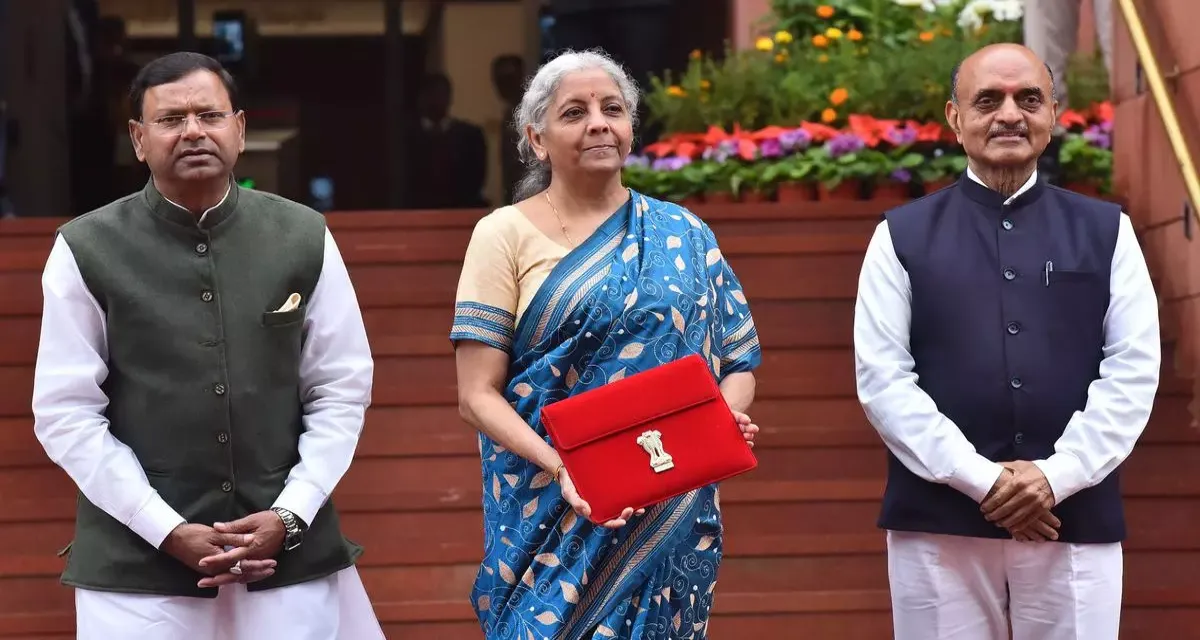

The Union Budget for 2024–25 was presented by Finance Minister Nirmala Sitharaman on Tuesday, July 23. After the BJP won the 2024 Lok Sabha elections, she presented the budget for the seventh time in a row and for the first time under Prime Minister Modi's third term. New policies for electric cars (EVs), the FAME III scheme, and possible changes in taxation and subsidies that could restructure the industry were expected to be important topics of attention as the automotive sector eagerly awaits the impact of the budget. Let’s break down the details of what the budget holds for the automotive industry this time:
The Indian government has set an ambitious target to have 30% of all vehicle sales be electric by 2030. To support this goal, the new Faster Adoption and Manufacturing of Hybrid and Electric Vehicles (FAME III) program is expected to offer increased subsidies for EV buyers. Additionally, it aims to encourage companies to set up battery manufacturing plants in India and invest in research and development of battery technology. The program will also focus on increasing the number of EV commercial vehicles and introducing a comprehensive battery-swapping policy. These initiatives align with the government's Make in India campaign.
The budget might bring changes to the Goods and Services Tax (GST) structure, particularly for hybrid vehicles, which currently face a 43% tax, just below the 48% tax on petrol and diesel vehicles. There could also be policy changes for alternative fuels like biofuels and CNG. Another anticipated change is the introduction of new subsidies under the Vehicle Scrapping Policy.
Many industry leaders have expressed their satisfaction with the budget. Prashant Vashishtha, Chairman and Managing Director of Sokudo Electric India, welcomed the reduction in custom duties, which would make EVs more affordable. He highlighted that a 10% reduction in custom duties on lithium-ion batteries would lower production costs and, consequently, the prices of EVs for consumers. This move aligns with the government's vision of promoting sustainable transportation and reducing reliance on fossil fuels.
Ayush Lohia, CEO of Lohia, appreciated the government's focus on supporting MSMEs and creating jobs in the manufacturing sector. The new scheme, which reimburses employers' contributions to the Employees' Provident Fund Organization (EPFO), is expected to benefit manufacturers across various sectors. This could lead to increased production capacity and more job opportunities.
The Finance Minister announced the exemption of import duties on 25 critical minerals, including lithium. This is expected to reduce the manufacturing costs of batteries and, in turn, lower the prices of electric vehicles for consumers.
The budget also includes significant investments in skill development programs. The government plans to set up 1,000 industrial training centers, including Hub-and-Spoke models, to meet the high demand for a specialized workforce in the automotive industry.
Stakeholders expect substantial investments in EV charging infrastructure to address range anxiety and promote EV usage. Anmol Singh Jaggi, Co-Founder of BluSmart, emphasized the need for public EV charging infrastructure with fast-charging capabilities in cities to accelerate EV adoption.
There are calls for including private buses and commercial vehicles under the FAME program to boost EV adoption. Sridhar V, a partner at Grant Thornton Bharat, suggested that incentives for government or state-owned buses should be extended to privately owned buses as well. These buses are crucial for intercity commuting and are favored by passengers.
The Automotive Component Manufacturers Association of India (ACMA) believes that reducing the GST to 5% on all EV components, including lithium-ion batteries and spare parts, is the only way to make EVs more affordable. The Society of Manufacturers of Electric Vehicles (SMEV) also advocates for reducing the GST on battery packs from 18% to 5% to boost EV sales.
In Conclusion, The Union Budget 2024-25 has introduced several measures to promote the adoption of electric vehicles and support the automobile industry. The focus on reducing costs, increasing subsidies, and improving infrastructure is expected to drive the growth of the EV market in India. These initiatives not only align with the government's vision of sustainable transportation but also contribute to a cleaner environment and reduced dependency on fossil fuels. As the industry adapts to these changes, the Indian automobile sector is poised for significant growth and transformation in the coming years.
Also Read: